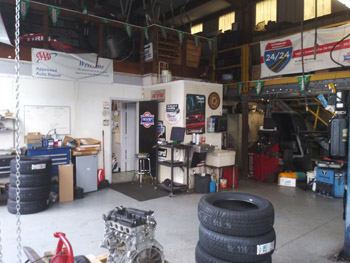All Categories
Featured

[/image]
Your lorry's brakes are among the most vital elements in ensuring your safety and security and the safety of others on the road. Regular brake assessments are important to maintaining ideal braking performance and preventing expensive fixings. Whether you're an experienced cars and truck owner or a brand-new chauffeur, understanding brake assessment standards can help you remain positive about maintenance and ensure your automobile is constantly roadworthy.
- Why Brake Inspections Issue. Brakes are subject to continuous wear and tear. The even more you drive, the extra friction your brake pads sustain, eventually causing reduced stopping performance. Without correct assessment, it's challenging to evaluate when your brakes may be in demand of repair. Normal brake checks help recognize concerns early on, stopping potential failings that could place you in jeopardy.
A properly maintained brake system makes sure fast, receptive quiting power, especially in emergencies. It also assists prolong the life of your automobile, as overlooking brake upkeep can lead to a lot more extreme, expensive troubles later.
- Signs You Need a Brake Examination. While it's vital to have your brakes examined periodically, particular indicators might indicate that they require attention. Keep an eye (and ear) out for these caution signals:
Squealing or Grinding Sounds: Unusual noises, specifically a high-pitched squeal or grinding noise, often mean that your brake pads are worn down. Vibration or Pulsation: If you feel vibrations or a pulsing experience when pushing the brake pedal, it can be an indication of warped rotors or irregular brake pad wear. Decreased Brake Responsiveness: If your brakes feel much less responsive or you need to push the pedal harder to reduce down, it may suggest air in the brake lines or low brake liquid. Pulling to One Side: If your car pulls to one side when braking, it could suggest uneven brake pad wear or a brake fluid leak. Dashboard Warning Lights: Some vehicles have brake-related caution lights that suggest concerns like reduced brake fluid or used brake parts. If you discover any of these signs and symptoms, it's important to have an expert mechanic carry out a brake inspection immediately.

- What Takes place Throughout a Brake Examination? Throughout a brake examination, a mechanic will certainly inspect numerous vital parts of the braking system to guarantee whatever is in functioning order. Here's what you can anticipate during the process:
Brake Pads and Shoes: The technician will examine the density of the brake pads or shoes. If they're as well thin, they'll need to be changed. Brake Rotors: Blades are the discs that the brake pads press against to slow your cars and truck down. They'll be inspected for any type of indications of wear, scoring, or bending. Brake Fluid: Reduced or polluted brake liquid can impair braking efficiency. The technician will certainly check the fluid degree and top quality and top it up or flush it if needed. Brake Lines and Pipes: Brake lines carry liquid from the master cyndrical tube to the brakes. The mechanic will look for any kind of leakages, cracks, or damage to make certain appropriate fluid circulation. Brake Calipers and Wheel Cyndrical Tubes: Calipers and wheel cyndrical tubes push the brake pads against the rotors or drums. The professional will certainly look for wear, leaks, and appropriate procedure. 4. Exactly how Frequently Should You Have Your Brakes Evaluated? The regularity of brake examinations depends upon elements like your driving practices, the sort of lorry you drive, and the setting in which you drive. As a basic regulation, it's an excellent idea to have your brakes checked every 12,000 miles or when a year. Nevertheless, if you experience any one of the warning indicators pointed out earlier, it is necessary to get your brakes inspected instantly.
For those who frequently drive in rush hour, mountainous terrain, or severe weather, even more frequent inspections may be required.
- Value of Timely Brake Repairs. When you detect an issue with your brakes, it's vital to resolve it right away. Delaying brake repair work can lead to even more substantial damage to your stopping system, resulting in higher repair prices. In severe situations, disregarding brake issues can cause finish brake failure, which is a major safety risk.
By remaining on top of brake upkeep and dealing with problems immediately, you make certain that your brakes proceed to execute as planned, keeping you and your passengers secure when driving.
Verdict: Keep Your Brakes in Leading Shape. Brake examinations are an easy yet vital part of vehicle maintenance. By understanding the importance of regular assessments, recognizing the indications of brake concerns, and remaining proactive with repair services, you can guarantee your car's braking system stays in optimum problem.
Latest Posts
Discover Exclusive Auto Repair Offers in Chicago at Montclare Auto Repair
Explore the Top Auto Repair Deals in Montclare, Chicago
Learn Why Chicago Drivers Trust Montclare Auto Repair for Reliable Service and Huge Savings
More
Latest Posts
Discover Exclusive Auto Repair Offers in Chicago at Montclare Auto Repair
Explore the Top Auto Repair Deals in Montclare, Chicago
Learn Why Chicago Drivers Trust Montclare Auto Repair for Reliable Service and Huge Savings